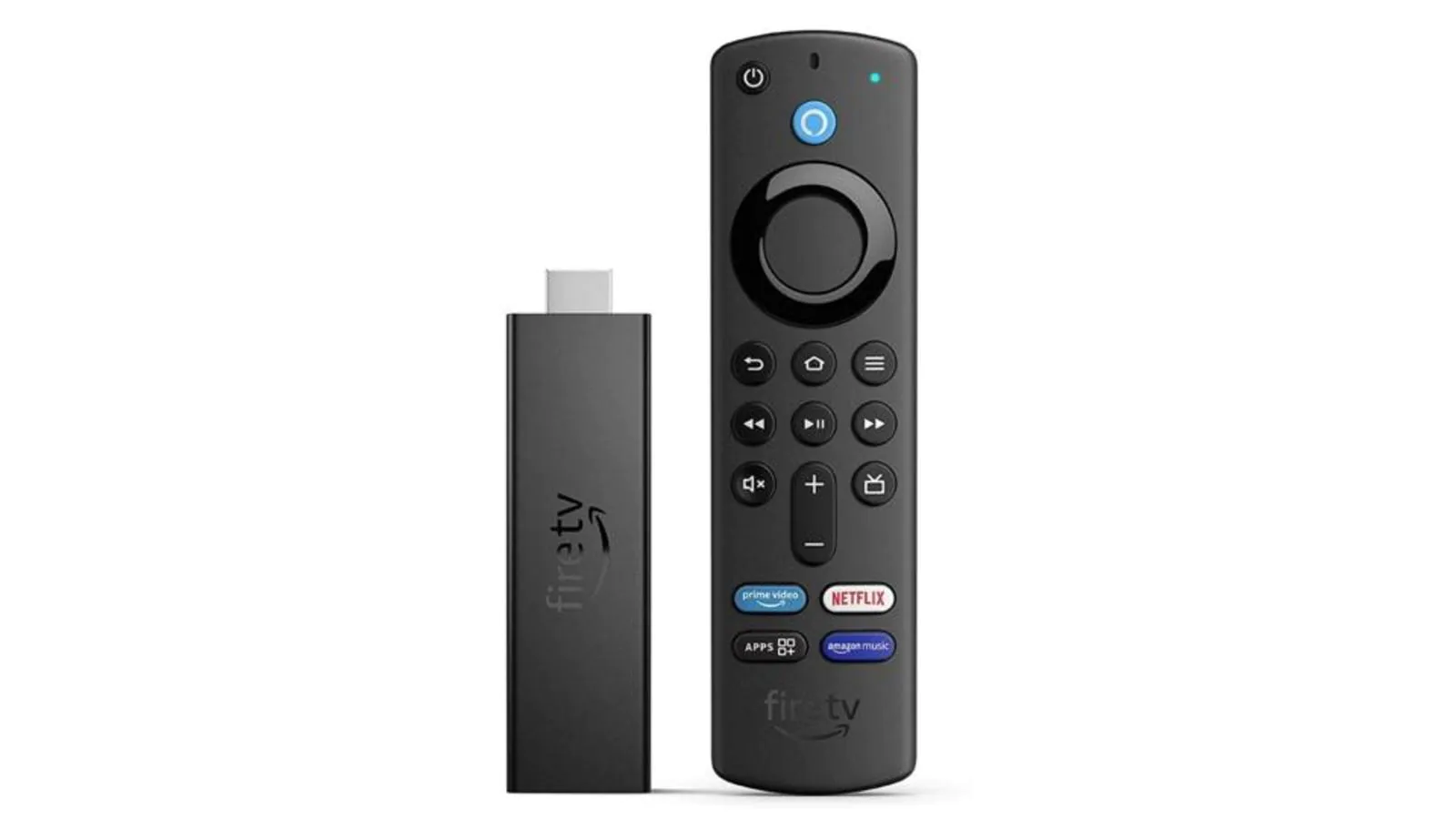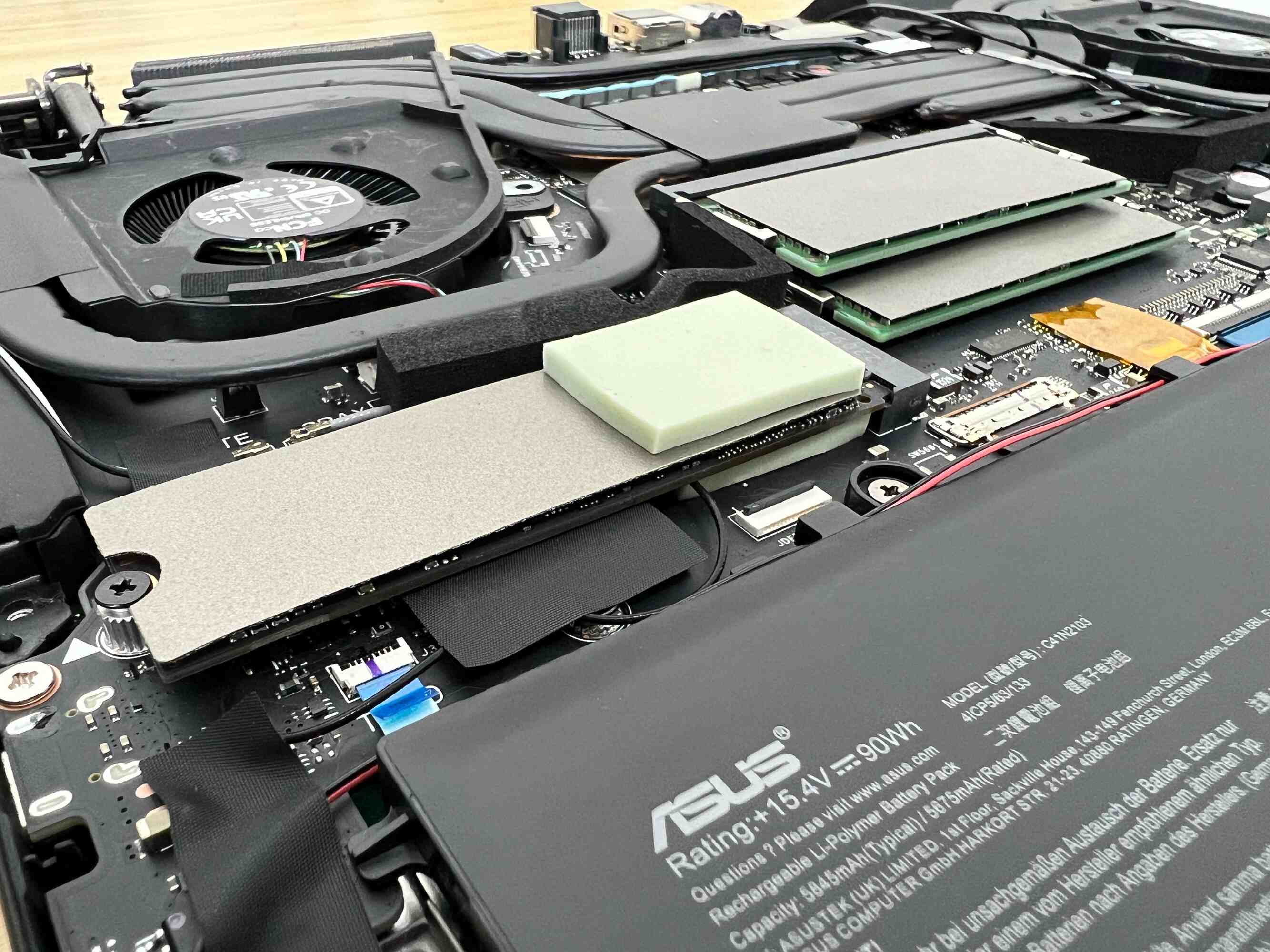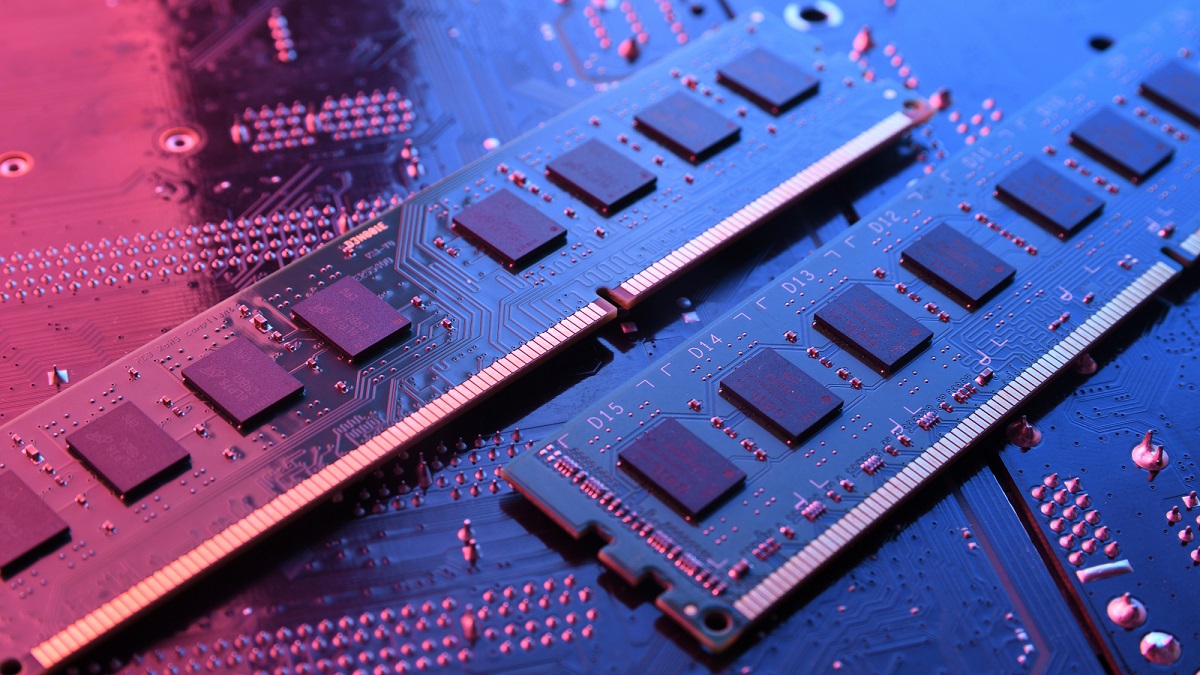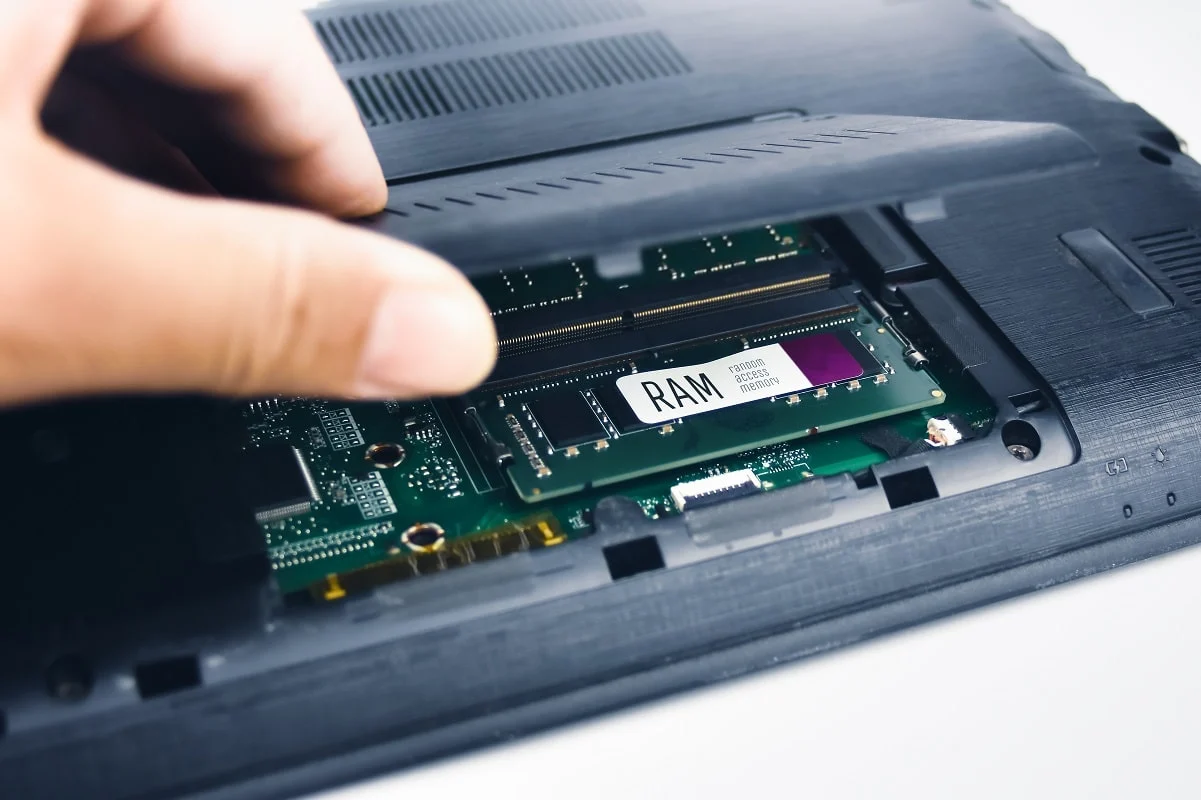Introduction
Welcome to the world of gaming and streaming! Whether you’re a passionate gamer or an aspiring streamer, one crucial question you might have is how much RAM you need to effectively engage in these activities. RAM, or Random Access Memory, plays a vital role in ensuring smooth and seamless performance while gaming and streaming.
RAM is a type of computer memory that provides temporary storage for data that your computer needs to access quickly. It acts as a bridge between your processor and long-term storage (hard drive or SSD), allowing for fast and efficient retrieval of data. When it comes to gaming and streaming, having the right amount of RAM can make a significant difference in the overall experience.
In this article, we will explore the specific RAM requirements for gaming and streaming, factors to consider when choosing the right amount of RAM, and the minimum and recommended RAM specifications you should aim for. By the end, you’ll have a clear understanding of how much RAM you need to optimize your gaming and streaming setup.
What is RAM?
Before delving into the RAM requirements for gaming and streaming, it’s essential to understand what RAM is and how it functions. As mentioned earlier, RAM stands for Random Access Memory, and it is a critical component of your computer’s hardware.
RAM is like the short-term memory of your computer. It stores data that your computer is actively using or needs to access quickly. When you open an application or launch a game, the necessary data is loaded into the RAM for faster processing. Think of it as a workspace where your computer can quickly access and manipulate information.
RAM differs from your computer’s long-term storage (hard drive or solid-state drive) in terms of speed and functionality. While the hard drive stores data for long-term use, RAM provides temporary storage for data that needs to be actively worked on.
The speed and capacity of your RAM directly impact the performance of your computer. Having a sufficient amount of RAM ensures that your system can handle multiple tasks simultaneously without slowing down.
It’s important to note that RAM is separate from the storage capacity of your hard drive or SSD. While the storage size determines how much data you can store long-term, the RAM dictates how efficiently your computer can process data on the go.
In summary, RAM is a volatile form of memory that provides temporary storage for active data. It enables quick access to information, ultimately enhancing the overall performance and responsiveness of your computer.
RAM for Gaming
Gaming is a resource-intensive activity that requires a significant amount of processing power and memory. RAM is an essential component for a smooth gaming experience, as it directly affects the speed and performance of your games. The right amount of RAM can help prevent lag, reduce loading times, and provide seamless gameplay.
When it comes to gaming, the minimum amount of RAM recommended is typically 8GB. This is sufficient for running most modern games without any major issues. However, as games become more advanced and resource-demanding, having higher RAM capacity can offer a better gaming experience.
For gamers who play AAA titles or engage in competitive gaming, it is advisable to have at least 16GB of RAM. This additional memory allows for smoother gameplay and enables your computer to handle the high-resolution textures, complex physics, and sophisticated AI systems found in many modern games.
In some cases, even 32GB of RAM might be beneficial, especially if you plan to stream your gameplay or run other resource-intensive applications simultaneously. Streaming can be particularly demanding on your system’s resources, requiring additional RAM to keep everything running smoothly.
Additionally, the RAM speed, measured in megahertz (MHz), also plays a role in gaming performance. Higher RAM speeds can improve the overall responsiveness of your system, leading to faster loading times and smoother gameplay. However, the difference in gaming performance between different RAM speeds is generally minimal, and it is often more cost-effective to invest in higher capacity RAM rather than faster RAM.
Ultimately, the amount of RAM you need for gaming depends on your specific gaming habits and the types of games you play. While 8GB may be sufficient for most casual gamers, those who play more demanding titles or engage in streaming should aim for at least 16GB or higher for optimal performance.
RAM for Streaming
Streaming has become incredibly popular, allowing gamers to share their gameplay live with audiences worldwide. Streaming requires a significant amount of processing power and memory, as it involves not only running the game but also encoding and transmitting the video and audio in real-time.
When it comes to RAM for streaming, the recommended amount is typically higher than that for gaming alone. This is because streaming requires additional resources to handle the encoding and broadcasting processes without impacting game performance.
The minimum recommended RAM for streaming is generally around 16GB. This provides enough memory to run both the game and the streaming software concurrently without major issues. With 16GB of RAM, you can encode and transmit the video smoothly while maintaining a high-quality stream.
However, for streamers who want to ensure optimal performance and handle more demanding streams, it is advisable to have 32GB or even 64GB of RAM. This higher capacity allows for multitasking, such as running multiple applications simultaneously or encoding at higher video resolutions.
Additionally, streamers who use more resource-intensive encoding methods, such as software-based encoding, may require even more RAM. Software encoding puts a higher strain on the CPU and memory compared to hardware-based encoding methods, so having additional RAM can help maintain a stable stream without dropped frames or quality loss.
Streaming can also benefit from faster RAM speeds, similar to gaming. Higher RAM speeds can improve the encoding and streaming process, resulting in better video quality and lower latency. However, as with gaming, the impact of RAM speed on streaming performance is relatively minor compared to having a sufficient amount of RAM.
Ultimately, the amount of RAM needed for streaming depends on the complexity of your streams, encoding settings, and the multitasking you plan to do. While 16GB is generally sufficient for most streamers, those who engage in more demanding streams or multitask heavily may want to consider 32GB or higher for optimal performance.
Factors to Consider
When determining how much RAM you need for gaming and streaming, there are several factors you should consider to ensure optimal performance and a smooth experience. Let’s take a look at these factors:
- Game and Streaming Software: Different games and streaming software have varying system requirements. Ensure that you check the recommended specifications for the specific games and software you plan to use.
- Streaming Resolution and Bitrate: Higher resolutions and bitrates require more resources, including RAM, to encode and transmit smoothly. If you plan to stream at higher resolutions, such as 1080p or 4K, or with a high bitrate, you may need additional RAM.
- Multi-tasking: If you plan to run multiple applications simultaneously while gaming and streaming, such as web browsers or chat programs, consider how much additional memory will be required to handle these tasks alongside your game and streaming software.
- Future-Proofing: Consider your future gaming and streaming needs. Purchasing more RAM now can help ensure that your system remains capable of handling upcoming games and software updates without the need for an immediate upgrade.
- Operating System: Different operating systems have different memory requirements. Keep in mind the memory allocation for the operating system itself when determining how much RAM is needed for your gaming and streaming setup.
- Budget: While having more RAM is generally beneficial, it’s important to stay within your budget. Consider your financial limitations and prioritize other hardware components, such as the CPU and GPU, before investing in excess RAM.
By carefully considering these factors, you can determine the optimal amount of RAM for your gaming and streaming setup, providing you with smooth performance and an enjoyable experience.
Minimum RAM Requirements
When it comes to determining the minimum RAM requirements for gaming and streaming, it’s crucial to consider the baseline specifications needed to run your chosen games and streaming software. While the specific requirements may vary depending on the titles and software you use, there are some general guidelines to keep in mind.
For gaming, the minimum RAM requirement is typically 8GB. This amount of memory is enough to run most modern games without significant issues. However, keep in mind that some newer and more demanding games may recommend or require higher RAM capacities.
When it comes to streaming, the minimum recommended RAM is also generally around 8GB. This allows you to run your streaming software and the game simultaneously without excessive performance impact. Streaming software typically doesn’t require as much memory as the game itself, but having enough RAM ensures smooth streaming performance.
It’s important to note that minimum RAM requirements are just that – the bare minimum needed to run the game or streaming software. While this level of RAM may be sufficient for basic functionality, it may not provide the best experience in terms of performance, stability, and multitasking capabilities. If you want to ensure smooth gameplay or stream at higher resolutions or bitrates, it’s recommended to have more RAM than the minimum requirement.
Remember, these minimum RAM requirements can vary depending on the specific titles and software you use. Always check the recommended specifications provided by the developers or manufacturers of your games and streaming software to determine the optimal RAM capacity for your setup.
Recommended RAM for Gaming and Streaming
While the minimum RAM requirements provide a starting point, the recommended RAM for gaming and streaming is often higher to ensure optimal performance and multitasking capabilities. Here are some guidelines for the recommended RAM capacity:
For gamers, it is recommended to have at least 16GB of RAM. This amount provides ample memory to handle demanding games, high-resolution textures, and complex physics simulations. With 16GB of RAM, you can enjoy smooth gameplay without experiencing performance issues or noticeable lag.
When it comes to streaming, it is advisable to have 16GB of RAM as a minimum. This allows for smooth encoding and streaming while running your game simultaneously. With 16GB, you can ensure that your streams maintain a high-quality output and that your computer can handle the resource-intensive tasks of gaming and streaming concurrently.
However, for those who want to go a step further and future-proof their setup, having 32GB or even 64GB of RAM is recommended. This higher RAM capacity enables smooth multitasking, such as running multiple applications alongside your game and streaming software, or even handling more demanding streaming setups with higher resolutions and bitrates.
Furthermore, having additional RAM is essential for streamers who use software-based encoding, as it places a heavier load on both the CPU and memory. With more RAM, you can ensure stable encoding and prevent dropped frames or quality loss during the streaming process.
Ultimately, the recommended RAM for gaming and streaming varies based on your specific needs, multitasking requirements, and the level of future-proofing you desire. While 16GB is generally sufficient for most gamers and streamers, having higher RAM capacities can offer even better performance and flexibility, especially for those who engage in more demanding activities or multitask heavily.
Conclusion
RAM plays a crucial role in both gaming and streaming setups, significantly impacting performance, multitasking capabilities, and overall user experience. When determining the optimal amount of RAM for your gaming and streaming needs, several factors should be considered.
For both gaming and streaming, the recommended minimum RAM requirement is typically 8GB. However, to ensure smooth performance and handle more demanding games and streaming setups, it is recommended to have at least 16GB of RAM. This higher capacity provides the necessary resources for multitasking, encoding, and seamless gameplay.
Moreover, if you want to future-proof your setup or engage in more resource-intensive tasks, such as running multiple applications while gaming and streaming, it’s advisable to consider 32GB or even 64GB of RAM. This higher capacity allows for smoother multitasking and ensures that your system can handle upcoming software updates and advancements.
Additionally, while RAM speed can impact performance, it is often more cost-effective to prioritize higher RAM capacities rather than faster RAM speeds, unless you have specific requirements that necessitate faster memory.
In conclusion, selecting the right amount of RAM for gaming and streaming requires considering factors such as game and streaming software requirements, streaming resolution and bitrate, multitasking needs, future-proofing, operating system, and budget. By taking these factors into account, you can optimize your gaming and streaming experience and enjoy smooth, high-performance gameplay and broadcasting.

























